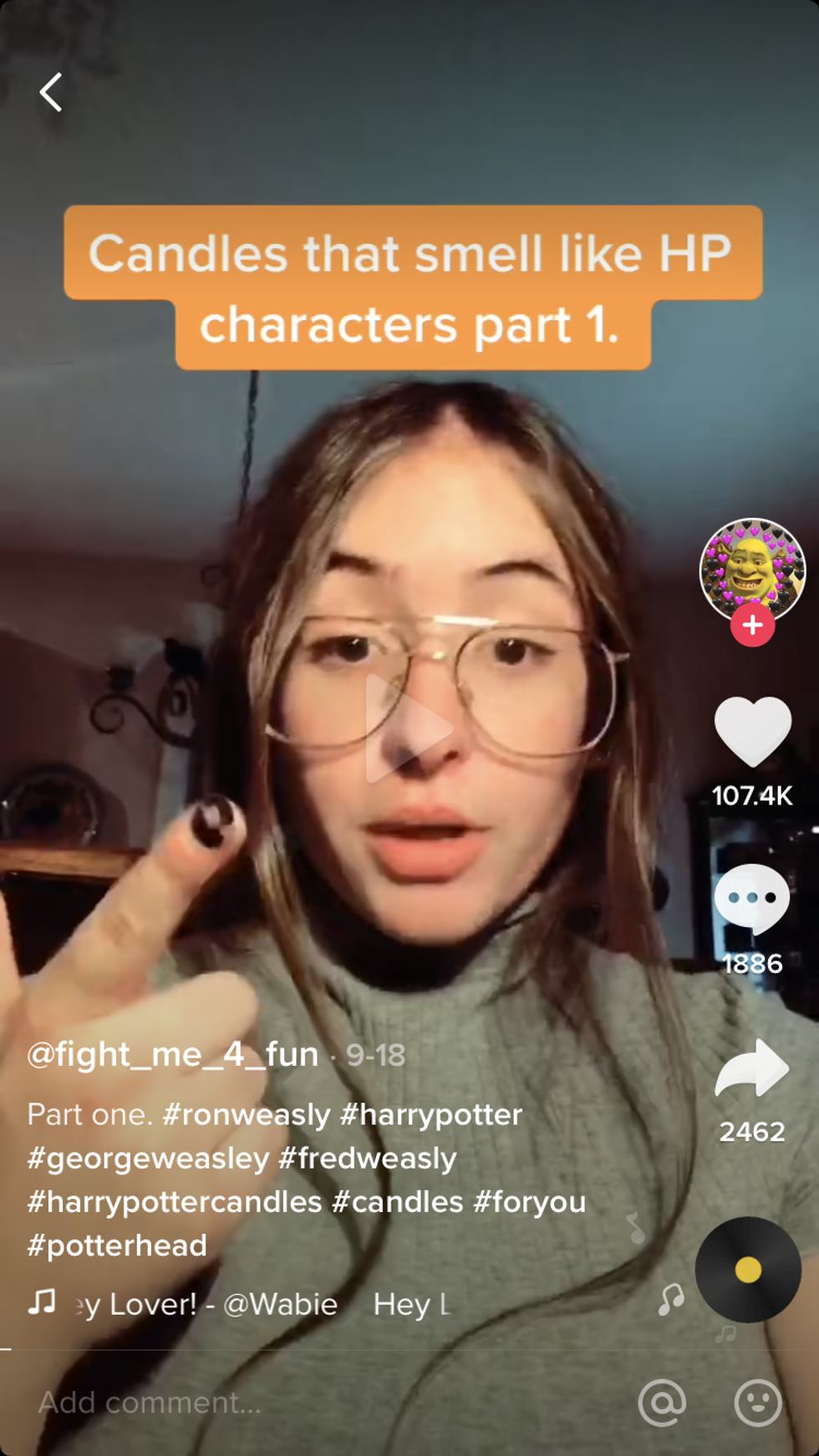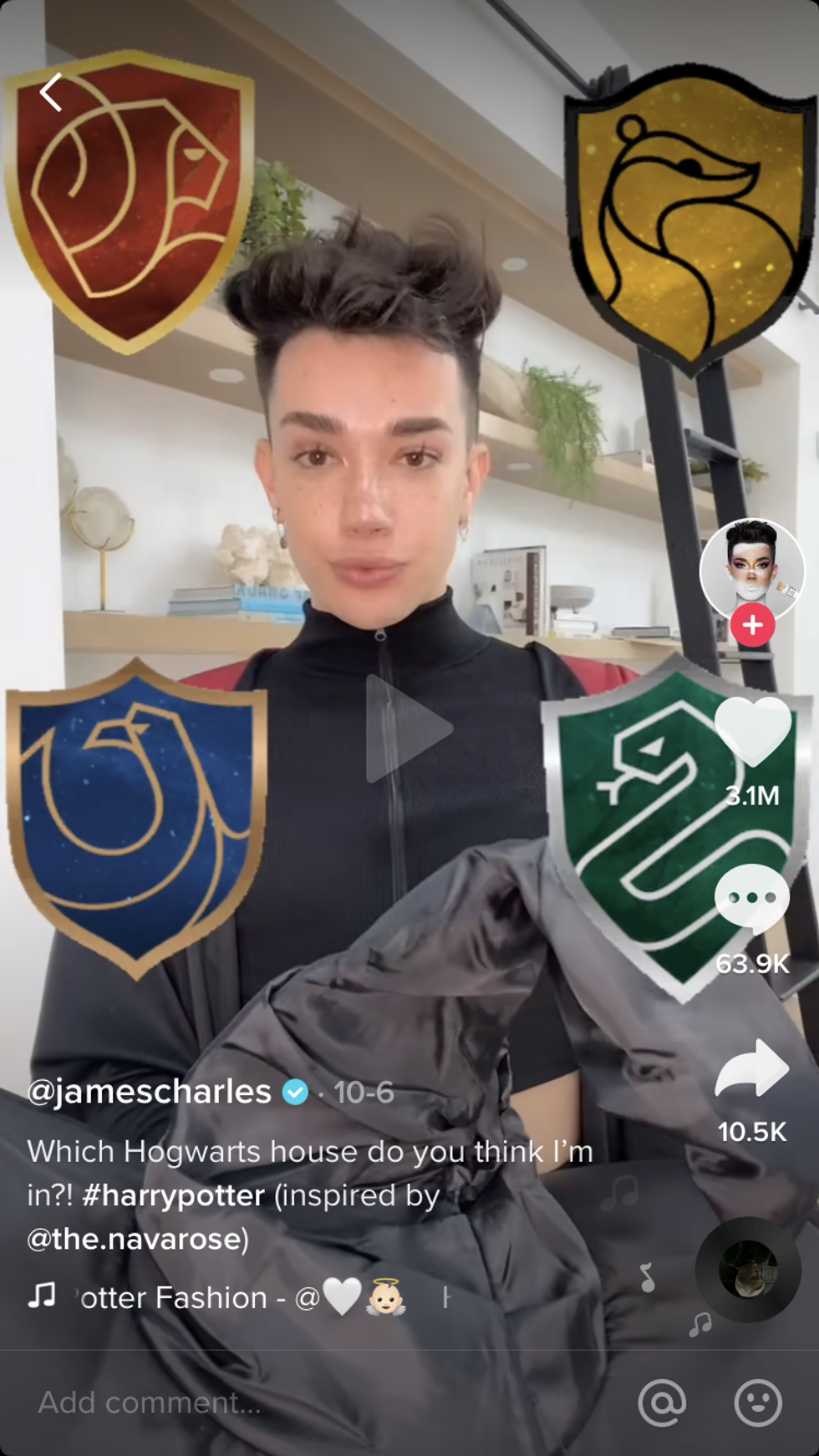TikTok has taken off, rising to become one of the most popular social media apps for kids, teens, and young adults. I have spent many hours scrolling through its endless content provided by millions of creators. Ever since quarantine for the COVID-19 pandemic began, I know many others have used it similarly to pass time and distract themselves from the harsh realities of the world.
Particularly within the past few months, there has been a resurgence of Harry Potter obsession. My 12 year old sister began asking me where my old J.K. Rowling books were, then the DVD movies, and soon she had her phone screen saver set as something to do with "muggles". She was bringing up the series in almost every conversation and on her social media. Gen Z kids of TikTok have taken to obsessing over the actors who played the characters. They're blowing up videos of people who look like the stars, creating new TikTok sounds that remix lines from the movies, and even assigning candle scents at Bath & Body Works to each character.

After getting annoyed seeing Draco Malfoy pop up on my screen in every other video, hearing my little sister obsess about this book series that I had long since gotten over, and seeing some of the most popular social media influencers participate in the trend, it finally occurred to me why there was such a fixation on this make believe world. The term to sum it all up is "escapism," defined on Wikipedia as a "mental diversion from unpleasant or boring aspects of daily life, typically through activities involving imagination or entertainment. Escapism may be used to occupy one's self away from persistent feelings of depression or general sadness".

With the current pandemic wreaking havoc on our lives, the climate crisis, and the intense political division in our society, I can see why these younger kids are feeling the need to escape reality. There are many examples of our culture's attempts at escapism that have occurred over the lockdown period; the binge watching of the strange Netflix documentary-series "Tiger King", baking copious amounts of banana bread, and the planning out of future travel for when the pandemic has subsided.
This form of dealing with dystopian realities date back to the Great Depression, where magazines, radio, and TV were centered around entertainment to distract from the economic hardships. It is clearly not a new coping mechanism to divert our stresses with excessive consumption of junk (hello reality TV!), but it is easier than ever with the constant flow of new content via social media. There is something comedic but unsettling about the resurgence of Harry Potter culture. Kids so much younger than me dug up that universe and are expressing the desire to exist in that world rather than ours today. Maybe little things like this are what we need to get through these times, but it also begs the question of how our generation will be effected in the long term.


















